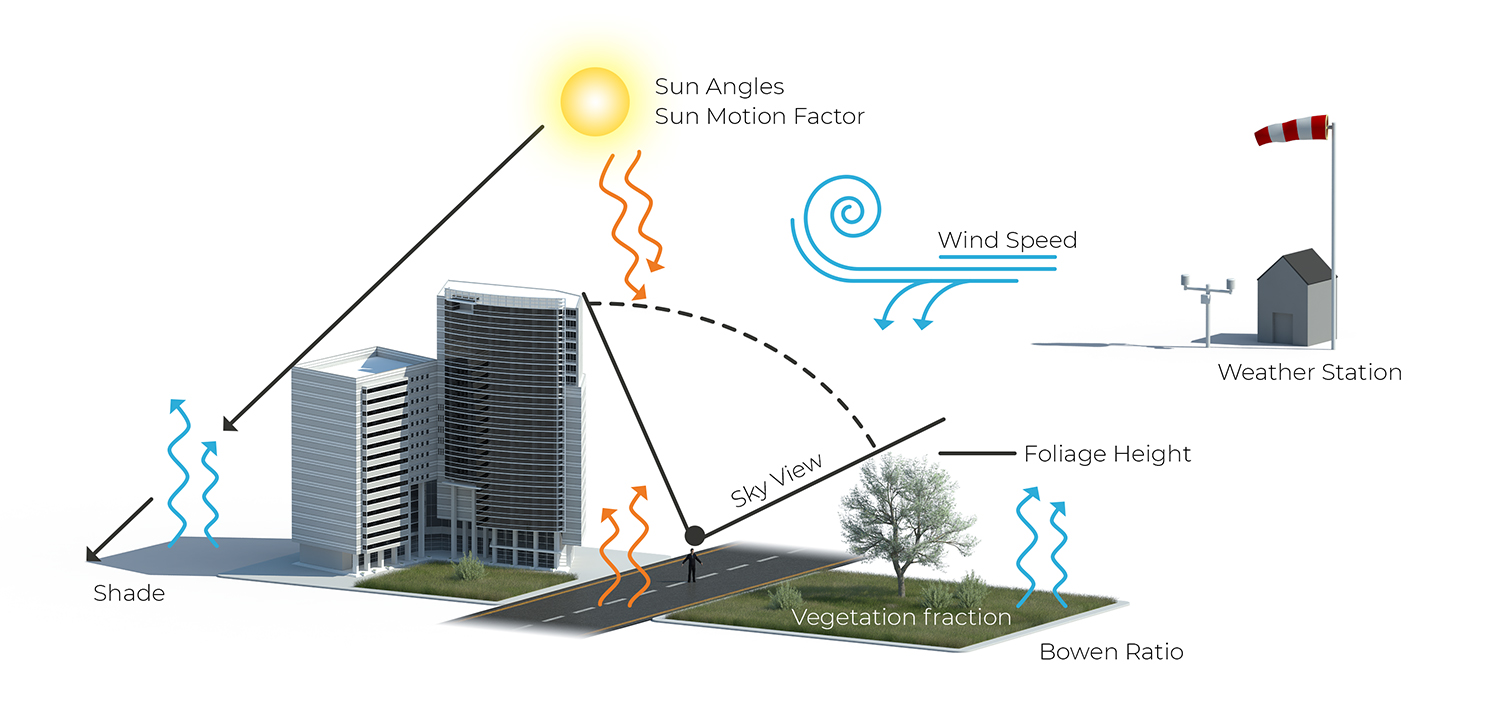Heat Module overview: Difference between revisions
| Line 41: | Line 41: | ||
== Required information == | == Required information == | ||
In order to configure the Heat Stress Overlay accurately it is required to add some information to the data available in the {{software}} about: | In order to configure the Heat Stress Overlay accurately it is required to add some information to the data available in the {{software}} about: | ||
# Date(s) and time of day. Also multiple consecutive days can be used. | # Date(s) and time of day. Also multiple consecutive days can be used. Each day-hour combination will become a result. | ||
# Daily weather station data | # Daily weather station data | ||
# Hourly weather station data | # Hourly weather station data | ||
Revision as of 14:24, 17 December 2019
This page contains a visual overview of the DPRA Heat Module and acts as a starting point to understand what the Heat Stress Module can deliver.
Ingredients
The calculation of the Heat Stress Overlays takes into account:
- Meteorological circumstances such as:
- Spatial situation, such as:
- Land use, for fraction vegetation and rate of evaporation (Bowen ratio).
- Terrain, foliage and building heights
Calculation of Physiological Equivalent Temperature
To calculate the Physiological Equivalent Temperature (PET), we first have to determine which formula (sun or shade/night) should be used. It is selected by:
- Day or night? Determined by the sun altitude angle;
- Is a cell shaded? Calculated by the shade calculation model;
PET sun
The following factors influence the Physiological Equivalent Temperature for locations directly in the sun:
- The atmospheric temperature, calculated by the atmospheric temperature formula;
- The hourly global radiation from the sun, supplied as weather station data;
- The wind speed at 1.2 meter above ground, calculate by the wind speed calculation model;
- The Wet-Bulb temperature, calculated by the Wet Bulb temperature formula;
- The sun altitude, calculated automatically based on the project area, date and time of day;
- The Bowen ratio, an attribute obtained from Buildings or Terrain on that specific location;
- The sky view factor, calculated by the sky view factor calculation model.
PET shade and night
The following factors influence the Physiological Equivalent Temperature for locations directly in the shade or at night:
- The atmospheric temperature, calculated by the atmospheric temperature formula;
- The wind speed at 1.2 meter above ground, calculate by the Wind speed calculation model;
- The Wet-Bulb temperature, calculated by the Wet Bulb temperature formula;
- The sky view factor, calculated by the sky view factor calculation model.
- The diffuse radiation, calculated by the diffuse radiation formula.
Required information
In order to configure the Heat Stress Overlay accurately it is required to add some information to the data available in the Tygron Platform about:
- Date(s) and time of day. Also multiple consecutive days can be used. Each day-hour combination will become a result.
- Daily weather station data
- Hourly weather station data
- Foliage height
In order to get acquainted with configuring the Heat Overlay, follow our Heat Overlay Tutorial and/or the instructions on our tutorial page. The steps in the Heat Overlay configuration wizard are summarized here.





